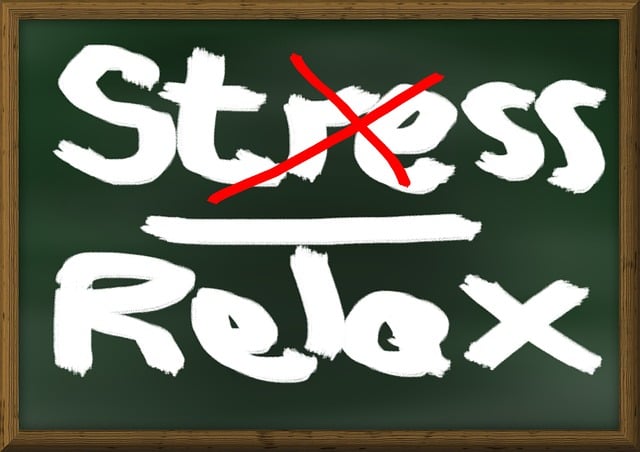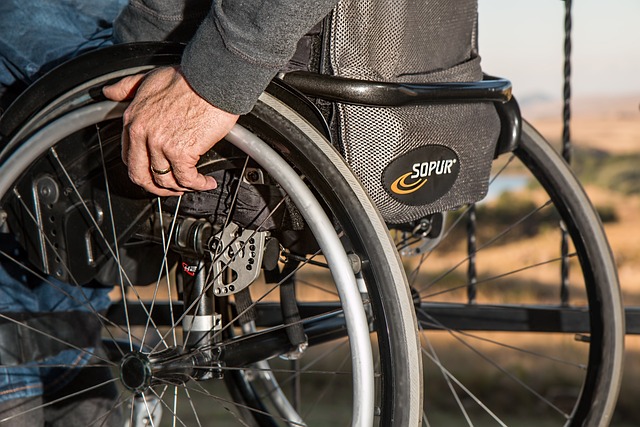Behavioral stress intervention is a therapeutic approach that focuses on modifying maladaptive behaviors contributing to or perpetuating stress, using techniques like cognitive behavioral therapy (CBT) and mindfulness practices. Identifying triggers through detailed records helps tailor interventions for personalized stress management. Mindfulness meditation and CBT are proven effective in lowering cortisol levels and enhancing emotional well-being, offering natural and powerful stress relief therapy. Incorporating lifestyle modifications such as physical activity, balanced nutrition, and social connections further enhances mental health, while building strong support networks is key to successful stress relief therapy. Measuring success involves holistic assessments of improved coping mechanisms, increased resilience, and sustained overall well-being.
Stress relief therapy, or Behavioral Stress Intervention, is a powerful tool for managing daily pressures. This comprehensive guide explores effective strategies to combat stress from multiple angles. We’ll delve into identifying personal triggers, understanding cognitive behavioral therapies like CBT, and adopting mindfulness practices. Additionally, discover the impact of lifestyle adjustments and social connections on mental health. By combining these evidence-based techniques, individuals can achieve lasting stress relief and enhance their overall well-being.
Understanding Behavioral Stress Intervention

Behavioral stress intervention is a therapeutic approach focused on identifying and modifying maladaptive behaviors that contribute to or perpetuate stress. It emphasizes understanding the connection between thoughts, feelings, and actions, aiming to replace unhelpful responses with healthier coping strategies. This form of therapy encourages individuals to challenge negative thought patterns, engage in relaxation techniques, and adopt new behaviors that promote overall well-being and stress relief.
Through various techniques such as cognitive behavioral therapy (CBT) and mindfulness practices, behavioral stress intervention helps individuals gain insights into their stress triggers and develop personalized strategies to manage them effectively. By learning to recognize and change unhelpful behaviors, people can reduce the impact of stress on their lives, fostering better mental health and improved quality of life.
Identifying Triggers and Patterns

Identifying triggers is a crucial step in any behavioral stress intervention. By understanding what sets off an individual’s stress response, therapists can tailor stress relief therapy to be more effective and targeted. Triggers can vary greatly from person to person—they might be specific situations, people, or even internal thoughts and feelings. Through careful observation and open communication, individuals can learn to recognize these triggers and patterns in their lives.
This process involves keeping a journal to log stressful events, noting the physical and emotional responses, and identifying recurring themes. With this information, stress management strategies can be developed to address the specific triggers, promoting better mental health and improved overall well-being.
Techniques for Stress Management

Stress management techniques play a pivotal role in behavioral stress interventions, offering individuals tools to mitigate and control their stress levels. One effective approach is mindfulness meditation, which encourages individuals to focus on the present moment, thereby reducing anxiety about future or past events. Regular practice can significantly lower cortisol levels and enhance emotional well-being.
Additionally, cognitive-behavioral therapy (CBT) is a powerful stress relief therapy that helps people identify and change negative thought patterns contributing to their stress. By challenging unhelpful beliefs and replacing them with more realistic, positive thoughts, CBT enables individuals to develop healthier coping mechanisms and improve their overall resilience to stressful situations.
Cognitive Behavioral Therapy (CBT) Approach

Cognitive Behavioral Therapy (CBT) is a well-established and effective approach to stress relief therapy. This evidence-based method focuses on identifying and changing negative thought patterns and behaviors that contribute to stress and anxiety. By challenging unhelpful cognitive distortions, CBT empowers individuals to develop healthier coping strategies and improve their overall emotional well-being. Through structured sessions, clients learn to recognize triggers, manage stress responses, and adopt more adaptive behaviors, leading to long-lasting positive changes.
The CBT approach encourages active participation from the individual, fostering self-awareness and personal growth. It involves setting specific goals, exploring thoughts, feelings, and behaviors in various situations, and learning relaxation techniques. This holistic process enables people to gain control over their stress, enhance problem-solving skills, and build resilience, making it a popular choice for those seeking effective stress relief therapy.
Mindfulness and Meditation Practices

Mindfulness and meditation practices have emerged as powerful tools in behavioral stress intervention, offering a natural and effective way to manage and reduce symptoms of stress. These ancient techniques focus on training the mind to be present in the current moment, thereby fostering a deeper sense of calm and clarity. Regular practice has been shown to decrease levels of cortisol, often referred to as the stress hormone, which can help alleviate anxiety and improve overall well-being.
Meditation encourages individuals to observe their thoughts without judgment, allowing them to develop a more detached perspective on stressful situations. By cultivating mindfulness, people can better regulate their emotions and respond to challenging circumstances with greater composure. This proactive approach to stress relief therapy empowers individuals to take control of their mental health, promoting resilience and enhancing their ability to navigate life’s ups and downs with grace and tranquility.
Lifestyle Changes for Better Mental Health

Incorporating lifestyle changes is a powerful tool in the arsenal for managing and reducing behavioral stress. Beyond traditional stress relief therapy, simple adjustments to daily routines can significantly impact mental health. Regular physical activity, for instance, releases endorphins that boost mood and decrease anxiety levels. A balanced diet, rich in nutrients, supports brain function, enhancing one’s ability to cope with stressful situations. Adequate sleep is another cornerstone; it allows the body to rest and recover, promoting resilience against stress. Additionally, mindfulness practices like meditation or deep breathing exercises can help individuals cultivate a sense of calm and perspective, providing effective tools for stress management in everyday life.
Social connections and engaging hobbies also play vital roles. Nurturing relationships offer support networks that buffer against the negative effects of stress. Pursuing interests and activities one enjoys can serve as healthy diversions, providing a break from stressors. Moreover, spending time in nature or practicing creative outlets like art or music have been shown to reduce stress hormones, fostering a sense of tranquility and emotional balance. These lifestyle changes, when integrated into daily life, offer holistic and sustainable strategies for enhancing mental well-being and promoting resilience to behavioral stress.
Building Support Systems and Social Connections

Building strong support systems and fostering social connections are essential components of any effective behavioral stress intervention. Human beings are inherently social creatures, and our relationships play a pivotal role in our emotional well-being. In the context of stress relief therapy, creating or strengthening these connections can provide individuals with a sense of belonging, which is crucial for managing stress levels effectively. Whether it’s reaching out to family, joining support groups, or participating in community activities, these social interactions offer opportunities for sharing experiences, offering perspectives, and receiving emotional support—all vital elements in mitigating the impact of stress.
By engaging in meaningful social activities, individuals can learn valuable coping strategies and develop a sense of resilience. Support systems act as a safety net during stressful times, enabling people to lean on others for encouragement and guidance. Moreover, discussing challenges and triumphs with trusted companions can help reduce feelings of isolation and promote positive mental health. This network of support is especially beneficial in stress relief therapy, where individuals work towards managing their emotional responses and adopting healthier coping mechanisms.
Measuring Success and Sustaining Long-term Relief

Measuring success in behavioral stress interventions is a nuanced process, as it goes beyond simply assessing symptoms. Effective stress relief therapy should demonstrate improvements in overall well-being, including enhanced coping mechanisms and increased resilience to stressful situations. This can be gauged through qualitative feedback from individuals participating in the program, where they share their experiences and perceptions of progress.
Sustaining long-term relief is another critical aspect. Interventions that provide immediate relief but lack longevity may not offer substantial benefits over time. Therefore, follow-up sessions and ongoing support are essential to ensure that stress management skills are retained and adapted as life circumstances change. This continuous care contributes to the overall success of the intervention, fostering lasting stress reduction and improved mental health.
